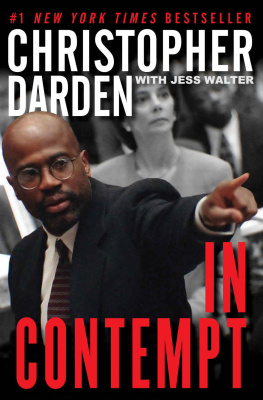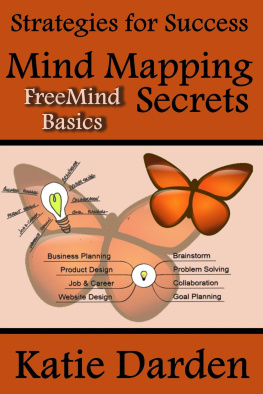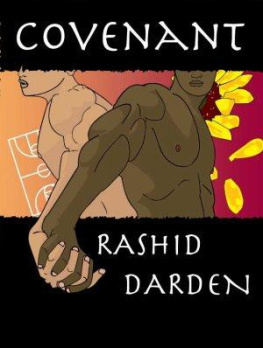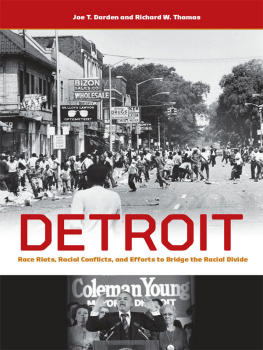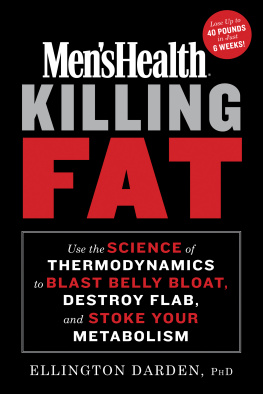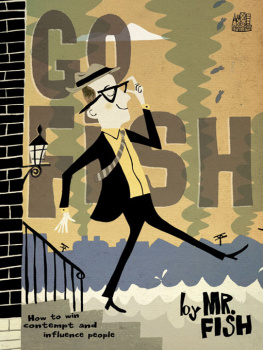Christopher Darden - In Contempt
Here you can read online Christopher Darden - In Contempt full text of the book (entire story) in english for free. Download pdf and epub, get meaning, cover and reviews about this ebook. year: 2016, publisher: Graymalkin Media, genre: Detective and thriller. Description of the work, (preface) as well as reviews are available. Best literature library LitArk.com created for fans of good reading and offers a wide selection of genres:
Romance novel
Science fiction
Adventure
Detective
Science
History
Home and family
Prose
Art
Politics
Computer
Non-fiction
Religion
Business
Children
Humor
Choose a favorite category and find really read worthwhile books. Enjoy immersion in the world of imagination, feel the emotions of the characters or learn something new for yourself, make an fascinating discovery.
- Book:In Contempt
- Author:
- Publisher:Graymalkin Media
- Genre:
- Year:2016
- Rating:4 / 5
- Favourites:Add to favourites
- Your mark:
- 80
- 1
- 2
- 3
- 4
- 5
In Contempt: summary, description and annotation
We offer to read an annotation, description, summary or preface (depends on what the author of the book "In Contempt" wrote himself). If you haven't found the necessary information about the book — write in the comments, we will try to find it.
In Contempt — read online for free the complete book (whole text) full work
Below is the text of the book, divided by pages. System saving the place of the last page read, allows you to conveniently read the book "In Contempt" online for free, without having to search again every time where you left off. Put a bookmark, and you can go to the page where you finished reading at any time.
Font size:
Interval:
Bookmark:
IN CONTEMPT
CHRISTOPHER A. DARDEN
with Jess Walter

IN MEMORY OF
Michael Virgil Darden
January 2, 1953November 29, 1995
Nicole Brown
May 19, 1959June 12, 1994
and
Ronald Goldman
July 2, 1968June 12, 1994

Behold, I shew you a mystery;
we shall not all sleep,
but we shall all be changed,
In a moment, in the twinkling of an eye,
at the last trump: for the trumpet shallsound,
and the dead shall be raised incorruptible,
and we shall be changed.
1 Corinthians 15:51-52

CONTENTS
PART 1
DARDEN

As I like to say to the people of Montgomery:
"The tension in this city is not between the white people
and the Negro people. The tension is, at bottom,
between justice and injustice, between the forces
of light and the forces of darkness."
Stride Toward Freedom,
Martin Luther King Jr., 1958
T HE CLERK, Deirdre Robertson, stumbled over his name, and for just a moment, a last bit of hope hung there on her voice. But I knew. I'd known from the beginning, from the moment I walked into that courtroom a year earlier and saw that jury. I could see in their eyes the need to settle some score. And I was the only prosecutor who knew what the score was. Still, to hear it announced like that was like a swift baseball bat to the stomach.
"We the jury in the above entitled action, find the defendant, Orenthal James Simpson, not guilty of the crime of murder... upon Nicole Brown Simpson, a human being..."
A human being.
"My God," I muttered. "My God, my God, my God." Next to me, the other lead members of the prosecution team, Marcia Clark and Bill Hodgman, whispered after me, "My God." I watched Simpson and his lawyer Johnnie Cochran pump their fists and smile fiercely and I wanted to scream.
I turned to face the jury, to show them my disgust. My eyes caught those of Juror 247, reportedly a former Black Panther. Earlier in the trial, Judge Lance Ito had asked Cochran to get tickets to the UCLA-Miami football game for Juror 247, and Simpson's lawyer had gladly obliged. That's what this trial was about. Juror 247 and I stared at each other while the courtroom erupted, all at once, in a collective gasp, a rejoicing shout, and the tortured hiss of Fred Goldman: "Murderer!" Finally, Juror 247 looked away from me, at the floor. As he left the courtroom, he raised his fist in a black power salute, and I was saddened that one of the symbols of my idealistic youth was being used to celebrate a killer's release. As the jury filed out of the box, my head swung around the courtroom until I settled on O.J. Simpson.
He turned to Kim Goldman, made eye contact with her, and smiled slyly. He'd done it. He'd killed her brother and, in spite of all the evidence against him, had gotten away with it. His eyes swept past the Brown family too. He'd won. He had told Nicole that he could kill her anytime, anyplace, and that he could get away with it. Well, he'd done it. And now it was over.
I stood, trying to get my bearings. One of the defense attorneys, Robert Shapiro, walked toward me, but I brushed him aside. Judge Ito immediately left the bench, locking himself in his chambers, which was where he belonged. I wanted nothing to do with him or the "Dream Team." I reached the door and looked back with disdain at the courtroom where I'd spent the last nine months. Alone, I turned away, walked through the double doors of Criminal Department 103, and never looked back.
I never got a chance, of course, to cross-examine him. And as I stood in the hallway, waiting for an elevator, I didn't want to anymore. I just wanted to talk to him, make sure he knew that he hadn't fooled all of us and that his "Dream Team" hadn't fooled most Americans. A criminal defendant, much like a lawyer, can forget sometimes that what is admissible in court isn't necessarily true and what is inadmissible isn't necessarily false, that a not guilty verdict doesn't mean you are innocent.
I wanted to tell him that there was another court that would hear his case one day, with a judge who would try racist cops and murderers separately. A court where everyone will have to account for his actions alone, without lawyers or jurors or overworked prosecutors. A court where there will be no need for DNA, gloves, or Akitas, and the only witnesses will be the eyewitnesses, Ron Goldman and Nicole Brown.
As I stepped on the elevator, I thought about Ron and Nicole and was filled with images that continue to haunt me. I could see exactly how it happened, in fact I see it still, much more vividly than I'd like, much more often than I want to. And every time I see it, I want to confront him, to tell him that I can see inside his heart and that I know what happened:
Through the window, you watched Nicole put away the dishes, didn't you? She finished and then she lit some candles and you watched her, the way you had watched her so many times before, on so many dry runs. She stopped suddenly and looked out the window, but she couldn't see you, because it was dark outside and well-lit inside. All she could see was her own reflection and, for just a moment, you both stood staring at the same thing: her frightened face. She reached into a drawer and grabbed a long kitchen knife, her knuckles white around the handle. You were impressed. You knew how afraid she must be to grab a knife. Nicole had told you and everyone else how frightened she was of knives, that it was her worst phobia, this irrational fear that one day she would be killed with a knife. She looked around the condominium and then set the knife back on the counter. And she went back to lighting candles.
Candles! That really got you, didn't it? You couldn't believe that she would light candles. That was your ritual, something that let you know she was ready to be taken. It infuriated you that she might be lighting candles for someone else. You moved along the bushes outside the window, watching her, the way you had watched her before. Was there a voice pulling you? Pushing you? Goading you? Or was it just matter-of-fact, slow and measured?
Was it because you owned her? I know you believed that she was yours from the time you first saw her in 1977, in that Beverly Hills restaurant where she was a waitress. You believed she was yours on that first date, when you tore at her pants to get at her more easily, when she seemed to like that. You could see beauty in a blond, small-chested, suburb-pretty girl, and so you set out to make her what you wanted her to be. You gave her an apartment and filled it with furniture. When you told her what to wear, she wore it; when you told her what to do, she did it; when you wanted her, you had her; when her hair wasn't blond enough, you told her to dye it.
From the beginning, she had a way of getting under your skin, didn't she? After she flirted with another man, in 1978, you smacked her in an elevator and told her that it was part of a normal relationship. That was just the beginning, of course. Everything she did on her own upset you. When you drank, she was afraid of you. You threatened to kill her when she talked about leaving you, and when she divorced you, she was so afraid, she hid all your guns.
Sure you loved her. You love a lot of your possessions. You even married her after it was clear the people at Hertz would rather have a married spokesman, especially if that spokesman was black and had a reputation for sleeping with every woman he met. And at first, the marriage was great and she knew who was in charge. After she had children, and didn't lose the weight fast enough, you told her she was too fat and you complained to her parents. What kind of impression did that give corporate America, a successful man like you with a fat woman? She had to understand that she was nobody without you. When you tried to make her understand, when you pushed her or knocked her down, she would just cry, so you would slap her again; you would stand above her, with your hand raised, and you would threaten to slap the living shit out of her if she didn't shut up. And she did.
Font size:
Interval:
Bookmark:
Similar books «In Contempt»
Look at similar books to In Contempt. We have selected literature similar in name and meaning in the hope of providing readers with more options to find new, interesting, not yet read works.
Discussion, reviews of the book In Contempt and just readers' own opinions. Leave your comments, write what you think about the work, its meaning or the main characters. Specify what exactly you liked and what you didn't like, and why you think so.

